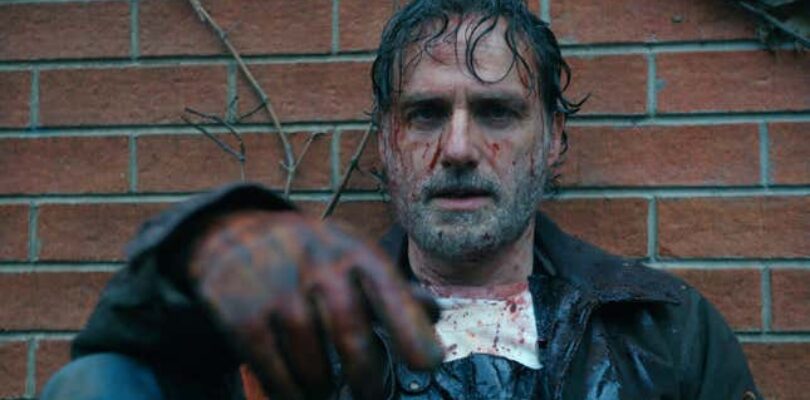A decade ago, The Walking Dead wasn’t a mere TV show, it was an impossible-to-escape cultural phenomenon. Crafted with precision, powerful performances, and prosthetics, early TWD rose above regular zombie fare upon its 2010 premiere—that pilot remains flawless even today. In its first few seasons, the AMC series transcended its genre, presenting a gripping post-apocalyptic survival tale by diving into terrifyingly real human emotions. It also successfully brought the comic book storylines and character dynamics to life with distinct twists. Regretfully, the show lost sight of those things as it dragged on.
Akin to the “walkers” at its core, TWD eventually became an unrecognizable, messy, empty husk. It lingered mercilessly until 2022 when it wrapped up after 11 seasons. That wasn’t nearly the end. The franchise continued with spin-offs ranging from understandable (Fear The Walking Dead) to eyebrow-raising (World’s Beyond) to drastic (Tales Of The Walking Dead). And it got worse. There were the egregious blunders of additional spin-offs for Daryl Dixon (Norman Reedus), Maggie Rhee (Lauren Cohan), and Negan (Jeffrey Dean Morgan). A so-called series finale is purposeless if audiences don’t get time away from beloved original characters. (Give us a chance to miss you, TWD!)
The transparent, pointless gimmick expands further with the franchise’s latest six-parter, The Ones Who Live (TOWL), premiering on February 25. The show is a flailing last-ditch effort to breathe new life into a universe surviving on a ventilator. It’s extreme nostalgia bait because it focuses on Rick Grimes (Andrew Lincoln), a.k.a. the man who started it all. TOWL catches up to Rick after he disappeared on a helicopter in early TWD season nine (back in 2018, for those keeping track). His wife, Michonne (a sensational Danai Gurira), split from the group in season 10 to hunt him down after discovering he was alive.
An electric Rick and Michonne, or “Richonne,” as dubbed by stans, reunion is a lofty goal. But it’s not nearly enough to save whatever the hell TWD wants to be in today’s landscape. The same storyline could’ve—and would’ve—had a weighty impact years ago, back when TOWL was envisioned as three movies to wrap up Rick’s arc (Side note: Announcing this plan after Lincoln’s exit reneged on the emotional value of him leaving). Production delays caused by the pandemic led to a limited series instead. But after all this time, the new series (four of six episodes were watched for this review) is a cry for help to stay relevant.
Don’t get us wrong, it’s still surprisingly heartrending to watch Lincoln and Gurira. They’re superb actors with an undeniable grasp of their characters, and together they’re intoxicating to watch. But is that enough? No. It’s also frustrating that Rick and Michonne’s no-holds-barred reconciliation doesn’t happen until late into the show’s run. TOWL somewhat necessarily devotes itself to fleshing out the past few years of Rick’s life with the Civic Republic Military. The organization sporadically appeared in TWD’s various offerings, but now there’s a dull insight into its evil machinations.
Here, Rick is anguished and resigned to his fate after multiple failed attempts to return to his family. His tether is a dreamy vision of his wife in a non-apocalyptic world. Meanwhile, Michonne goes through an arduous adventure of her own to reach her husband, losing friends along the way, only to eventually be met with a Rick she doesn’t fully recognize. He’s rising the CRM ranks; she desperately wants to take him back to their kids. Will they clash or team up? Underneath layers of exposition and forced plot twists lies a kernel of potential for the “epic love story” Lincoln and Gurira teased at a recent TCA panel.
An all-encompassing fourth episode digs into the nitty-gritty of Rick and Michonne’s relationship. Filmed like an indie, it has hints of the movie that could’ve been. (Props to Gurira for writing the installment). It’s the series’ singular strength, but the build-up to it is drawn out and nothing TWD hasn’t done before. If the same tricks are used for spin-off number six (!), why bother? The Ones Who Live carelessly speeds through deaths, months, and events, making it hard to care. The show features supporting characters played by the likes of Lost’s Terry O’Quinn and Lucifer’s Lesley-Ann Brandt. Don’t bother investing in their outcome because the show doesn’t care about them either. O’Quinn in particular is wasted in a meandering, broadly villainous role.
TOWL doesn’t add anything inventive to the TWD lineup and it’s weak at reinventing the wheel. The only lesson to be learned is that, as profitable hard as it may be, sometimes letting go is the right answer. Not everything good lasts forever. Look, this writer shamelessly binged The Walking Dead for a long time because it was freaking compelling. It’s hard to pinpoint when the downfall began—Glenn’s (Steven Yeun) skull-bashing, Negan’s arrival, or Rick’s departure? Perhaps it was when zombies became an afterthought, let alone a credible threat. In TOWL, too, walkers don’t add to the thrill. So TWD might’ve earned its massive viewership numbers and fanbase in the early 2010s, but it has long overstayed its welcome.
This neverending abyss is worth questioning in light of AMC’s other refreshing but overlooked originals (The Terror, Halt And Catch Fire, Dark Winds, Kevin Can F**K Himself, This Is Going To Hurt, and Interview With The Vampire come to mind). How has the cable network—and we, as an audience—conspired to keep The Walking Dead alive in the year 2024? Every ounce of creativity has been squeezed from it by now. Despite Lincoln and Gurira’s genuine efforts and sultry chemistry, The Ones Who Live needs to be the final straw. Please, let’s put The Walking Dead out of its misery now.
The Walking Dead: The Ones Who Live premieres on AMC on February 25





